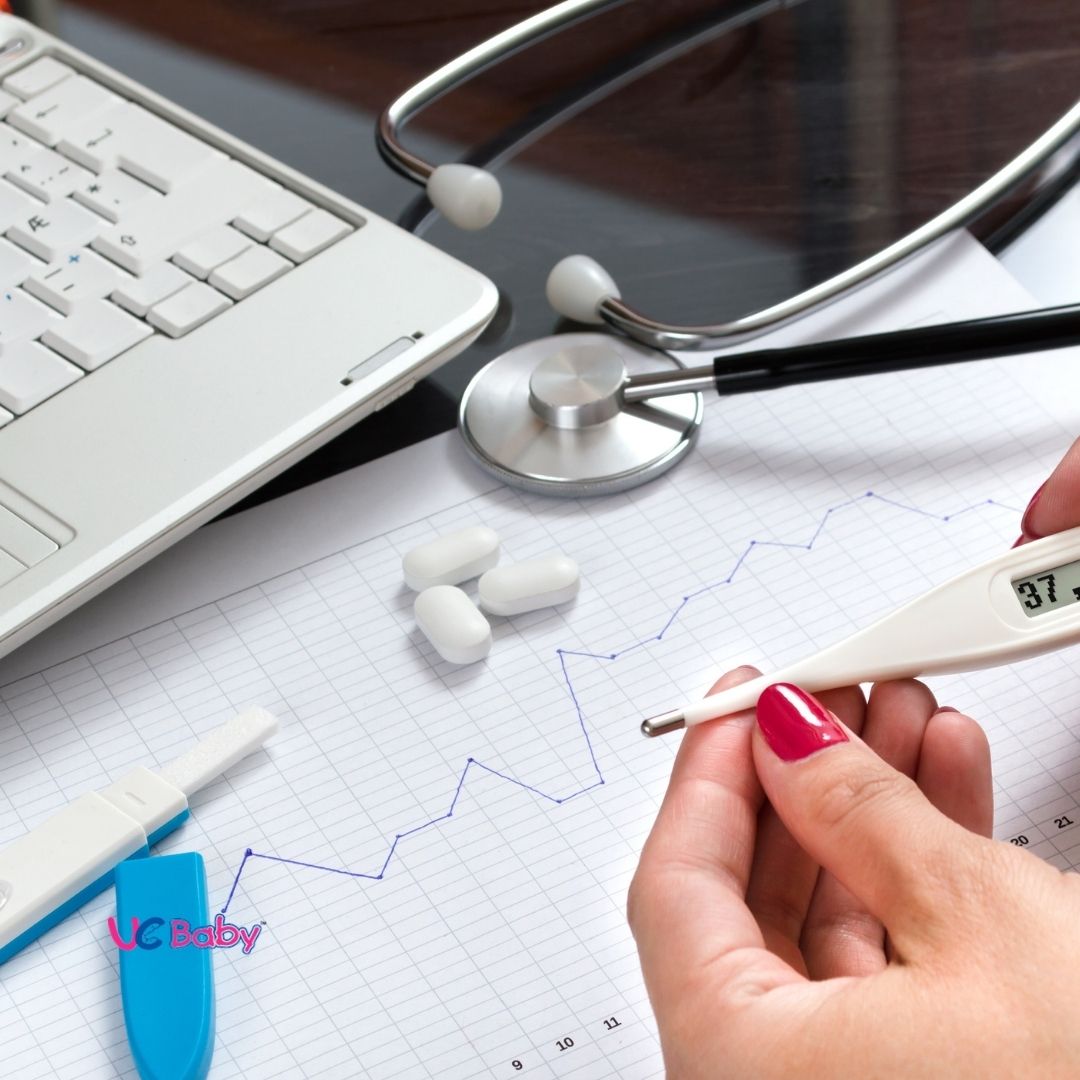Did you know that on average, there is a 25 to 30 percent chance of getting pregnant during your ovulation cycle? These odds are considerably high!
Ovulation time is a small window during each month when the egg is viable (12 to 24 hours) and open for fertilization. Sperm can live to fertilize an egg anywhere from 3-6 days. This means that even if you have sex a few days before ovulation, there may still be plenty of sperm around to greet the egg when your ovulation period starts.
It would be ideal to have intercourse on the day you ovulate since that window tends to close until the next cycle. Recognizing and understanding the signs of ovulation is key when getting pregnant is your goal.
What is Ovulation?
Ovulation is when a mature egg is released from the ovary. This should happen once a month in a regular cycle. The egg then moves down the fallopian tube where it can be fertilized. When the egg and sperm come together at the right time, they create an embryo, which then develops into a baby. Your ovulation cycle is the only time you can conceive.
When Do You Ovulate?
Ovulation usually occurs halfway through your menstrual cycle, or around Day 14 of the average 28-day cycle. Although the time of ovulation may vary from month to month, you can keep track of your menstrual cycles on a chart or period-tracker app on your phone.
To work out the length of your menstrual cycle, record the first day you start bleeding as Day 1. The last day of your cycle is the day before your next period begins.
If your cycles are on the shorter side, you’re more likely to ovulate closer to Day 11. If you have longer menstrual cycles, ovulation may occur closer to Day 21. This means a woman’s most fertile days will fall somewhere between Day 8 and Day 21. This is quite a long range of days when a woman could possibly conceive.
Due to the variability in cycle length and period of ovulation, it is also very important to look for ovulation symptoms when trying to have a baby.

Signs that You Are Ovulating
- Your cervix softens and opens up
- Your cervical mucus becomes clearer and thinner with a more slippery consistency
- You may feel mild cramps in your lower abdomen (ovulation pain)
- Increased sexual desire
- Light spotting
- Sustained basal body temperature increase
- Breast tenderness
Signs of Irregular Ovulation
If you’re ovulating irregularly, it might be harder for you to conceive. Here are some possible signs of an ovulation problem, also known as, ovulatory dysfunction.
- Irregular cycles
- Very short or long cycles
- Missing periods for months or longer (anovulation)
- No rise in basal body temperature
If you have symptoms of irregular cycles, it is best to consult a medical practitioner to guide you in tracking the right days for your ovulation period. They would also be able to recommend other helpful ways to conceive.
Written by: Melissa Ureten
REFERENCES:
8 Signs of Ovulation That Help Detect Your Most Fertile Time
Your Fertility right time for Sex
Understanding Ovulation & Fertility: Facts to Help You Get Pregnant





 Invite families and friends to witness this memorable event of your pregnancy. Celebrate that special child-bonding moment with your loved ones, wherever they are in the world.
Invite families and friends to witness this memorable event of your pregnancy. Celebrate that special child-bonding moment with your loved ones, wherever they are in the world. There is nothing more beautiful than your baby's heartbeats. Save that sound forever in a UC Baby® Heartbeat Bear®. It's not just a great keepsake, but also an effective way to sooth your baby to sleep.
There is nothing more beautiful than your baby's heartbeats. Save that sound forever in a UC Baby® Heartbeat Bear®. It's not just a great keepsake, but also an effective way to sooth your baby to sleep.